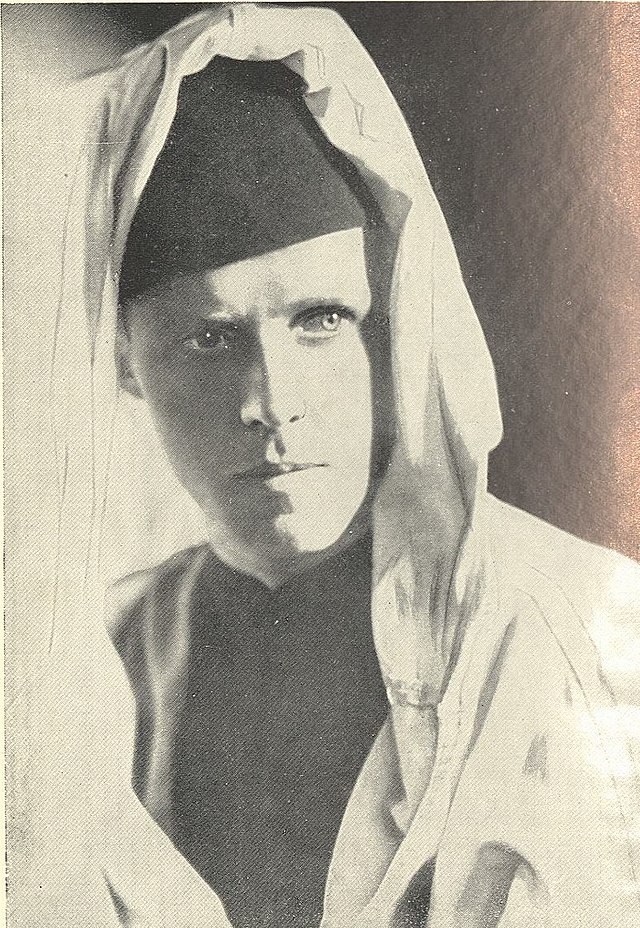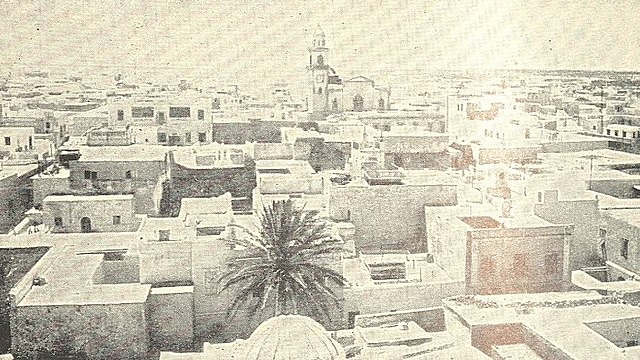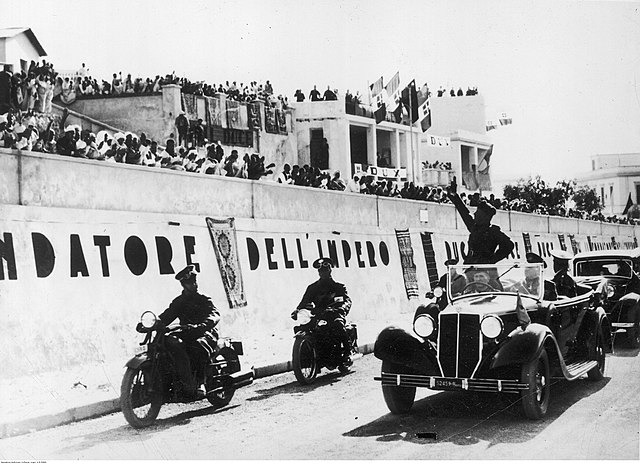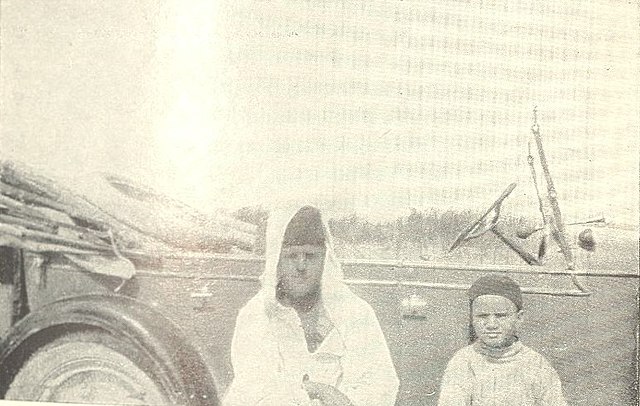The Danish Muslim Who Defended Libya

By: Mehdi El Merini / Arab America Contributing Writer
Knud Holmboe was a Danish journalist, author, and explorer whose life journey took him from the Lutheran faith of his upbringing to Islam and led him across the deserts of North Africa. His travels, especially his eye-opening experience in Libya during the brutal Italian occupation, became the core of his most famous work, Desert Encounter (1931). Holmboe’s story is not only one of adventure and religious transformation but also of advocacy against colonial atrocities, culminating in his mysterious and untimely death in 1931.
Early Life and Journey to Islam
Born on April 22, 1902, in Horsens, Denmark, Knud Holmboe grew up in a Protestant family, though from an early age, he displayed a keen interest in the world beyond Europe. After completing his education, he worked as a journalist, and his career would eventually take him to North Africa and the Middle East. However, it was his 1924 journey to Morocco and Algeria that truly changed his life, igniting a deep fascination with Islamic culture and the Arab world.
His spiritual transformation came as a result of his extensive travels in Muslim countries and his close interaction with Islamic culture and values. After spending time in Morocco, Algeria, and Egypt, Holmboe felt a strong attraction to Islam’s principles of simplicity, justice, and spirituality. By the late 1920s, he officially converted to Islam and adopted the name Ali Ahmed. This was a pivotal moment in Holmboe’s life, influencing not only his personal identity but also his political and social views.

Travels Across the Sahara
After converting to Islam, Holmboe set out on an extraordinary journey across the Sahara Desert. In 1930, he embarked on a trip from Morocco to Libya, traversing vast and treacherous landscapes, encountering Bedouins, and immersing himself in the local cultures. His goal was not only personal exploration but also journalistic inquiry, as he became increasingly aware of the injustices and exploitation taking place under European colonial rule in Africa.
During this journey, Holmboe documented his encounters with the indigenous people of the desert, especially in Libya, where Italian colonial rule was at its peak. His writings describe the warmth and hospitality of the Bedouin communities, who shared their culture, food, and Islamic practices with him. For Holmboe, these interactions reaffirmed his belief in the universal values of Islam, which contrasted starkly with the brutal and dehumanizing treatment of the native populations by European colonial powers.
Confronting Italian Colonial Rule in Libya
Holmboe’s time in Libya proved to be the most significant and dangerous part of his travels. In the 1920s and 1930s, Libya was under the harsh rule of the Italian government, which was seeking to suppress resistance movements and solidify its control over the colony. The Italians employed brutal tactics, including forced relocations, concentration camps, and the execution of Libyan rebels, particularly the Bedouins.
Holmboe witnessed the atrocities firsthand. In his book Desert Encounter, he exposed the horrific conditions in which the Libyan people were living under Italian rule. He recounted the forced displacement of entire villages, the summary executions of resistance fighters, and the inhumane conditions in concentration camps. His detailed accounts drew international attention to the plight of the Libyan people, making Holmboe one of the first Europeans to openly challenge Italy’s colonial policies in North Africa.
Holmboe’s book was a bold condemnation of colonialism, portraying the colonizers as brutal oppressors and highlighting the dignity and resilience of the Libyan people. His words struck a chord with readers across Europe and beyond, drawing sympathy for the Libyan cause. However, his critique of the Italian regime earned him powerful enemies, especially within Italy’s fascist government, led by Benito Mussolini.

Mysterious Death in 1931
Holmboe’s outspoken opposition to Italian colonialism made him a target, and his journey across the Sahara ended in tragedy. In October 1931, he was killed in the deserts of western Libya, under circumstances that remain unclear to this day. Some accounts suggest that he was murdered by Bedouin tribesmen, while others claim that the Italian authorities orchestrated his death as retribution for his damning reports on their colonial rule.
The true cause of Holmboe’s death has never been definitively proven, but many believe that his assassination was politically motivated. His criticism of Italian policies in Libya, his growing reputation as an advocate for the oppressed, and his conversion to Islam all made him a controversial figure. Some theories suggest that Italian agents might have incited local tribesmen to kill him, while others point to the inherent dangers of traveling through conflict-ridden regions as a possible explanation.
Despite his untimely death at the age of 29, Holmboe’s legacy endured. His work Desert Encounter continues to be read and studied for its vivid portrayal of life in North Africa and its powerful indictment of European colonialism. Holmboe is remembered as a courageous journalist who used his platform to shed light on the suffering of others, particularly the Libyan people, during a time when much of the world remained indifferent to their plight.

Legacy
Knud Holmboe’s life was brief, but his impact was profound. As one of the few Europeans to convert to Islam in the early 20th century and use his voice to stand against colonial oppression, he stands as a symbol of cross-cultural understanding and resistance to injustice. His writings, especially Desert Encounter, offer an intimate look into the lives of the indigenous peoples of North Africa and their struggles under colonial rule.
Today, Holmboe is celebrated not only as a pioneer of travel writing but also as a human rights advocate who, despite the dangers, sought to expose the truth. His untimely death only adds to the intrigue and poignancy of his story—a life devoted to understanding and defending the oppressed, cut short in the very desert that had shaped his destiny.
Check out our blog here!








